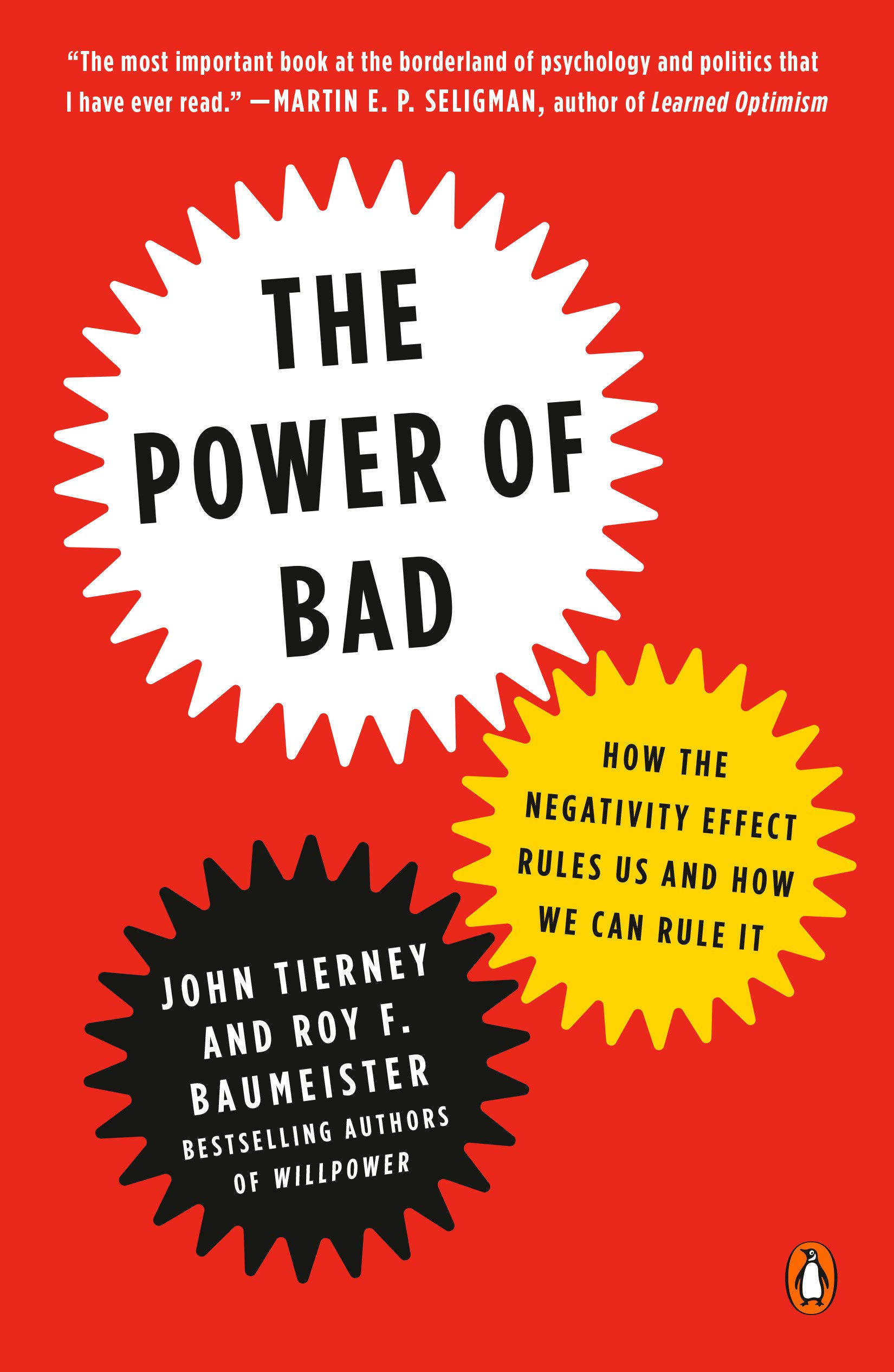Newly released
This book is new and will be uploaded as soon as it becomes available to us and if we secure the necessary publishing rights.

How the Negativity Effect Rules Us and How We Can Rule It Book PDF
(0)
Author:
John TierneyNumber Of Reads:
108
Language:
English
Category:
Social sciencesSection:
Pages:
322
Quality:
excellent
Views:
1442
Quate
Review
Save
Share
New
Book Description
The most important book at the borderland of psychology and politics that I have ever read.--Martin E. P. Seligman, Zellerbach Family Professor of Psychology at that University of Pennsylvania and author of Learned Optimism
Why are we devastated by a word of criticism even when it's mixed with lavish praise? Because our brains are wired to focus on the bad. This negativity effect explains things great and small: why countries blunder into disastrous wars, why couples divorce, why people flub job interviews, how schools fail students, why football coaches stupidly punt on fourth down. All day long, the power of bad governs people's moods, drives marketing campaigns, and dominates news and politics.
Eminent social scientist Roy F. Baumeister stumbled unexpectedly upon this fundamental aspect of human nature. To find out why financial losses mattered more to people than financial gains, Baumeister looked for situations in which good events made a bigger impact than bad ones. But his team couldn't find any. Their research showed that bad is relentlessly stronger than good, and their paper has become one of the most-cited in the scientific literature.
Our brain's negativity bias makes evolutionary sense because it kept our ancestors alert to fatal dangers, but it distorts our perspective in today's media environment. The steady barrage of bad news and crisismongering makes us feel helpless and leaves us needlessly fearful and angry. We ignore our many blessings, preferring to heed--and vote for--the voices telling us the world is going to hell.
But once we recognize our negativity bias, the rational brain can overcome the power of bad when it's harmful and employ that power when it's beneficial. In fact, bad breaks and bad feelings create the most powerful incentives to become smarter and stronger. Properly understood, bad can be put to perfectly good use.
As noted science journalist John Tierney and Baumeister show in this wide-ranging book, we can adopt proven strategies to avoid the pitfalls that doom relationships, careers, businesses, and nations. Instead of despairing at what's wrong in your life and in the world, you can see how much is going right--and how to make it still better
John Tierney
JOHN TIERNEY John Tierney is a journalist and bestselling author. He's a contributing editor to City Journal, a contributing science columnist to the New York Times, and has written for dozens of magazines and newspapers. His reporting has taken him to all seven continents, and his books have been translated into more than 20 languages.
His latest book, co-authored with the social psychologist Roy Baumeister, is "The Power of Bad: How the Negativity Effect Rules Us and How We Can Rule It." It has been praised by P.J. O'Rourke as "the best bad news ever," and described by Martin Seligman, the eminent psychologist, as "the most important book at the borderland of psychology and politics that I have ever read."
He and Baumeister previously co-wrote New York Times best-seller, "Willpower: Rediscovering the Greatest Human Strength." The psychologist Steven Pinker, writing in the New York Times Book Review, called it "an immensely rewarding book, filled with ingenious research, wise advice and insightful reflections on the human condition."
During more than two decades at the New York Times, he was a science columnist, an Op-Ed columnist and a staff writer for the Times Magazine. He wrote about New York in a column, "The Big City," which ran in the Times Magazine and in the Metro section.
John's books include what he calls an "alleged work of humor," "The Best-Case Scenario Handbook," which explains, among other things, how to deal with a broken ATM spewing cash and how to accept the Nobel Peace Prize. He is also the co-author, with Christopher Buckley, of a novel parodying self-help books: "God Is My Broker: A Monk Tycoon Reveals the 7 ½ Laws of Spiritual and Financial Growth
Read More
Book Currently Unavailable
This book is currently unavailable for publication. We obtained it under a Creative Commons license, but the author or publisher has not granted permission to publish it.
Rate Now
5 Stars
4 Stars
3 Stars
2 Stars
1 Stars
How the Negativity Effect Rules Us and How We Can Rule It Quotes
Top Rated
Latest
Quate
Be the first to leave a quote and earn 10 points
instead of 3
Comments
Be the first to leave a comment and earn 5 points
instead of 3